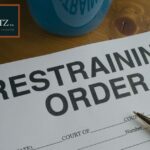Prescription medications might not be illegal drugs such as heroin, LSD, or peyote, but state and federal governments still regulate their distribution. Categorized as Schedule II, III, or IV controlled substances, prescription drugs have an accepted medical use but may lead to abuse and dependency, with the extent of such outcomes varying depending on the type of substance. As such, only authorized individuals, such as health care practitioners and pharmacists, can prescribe and dispense them for legitimate medical purposes.
People can face criminal penalties if they distribute a prescription medication without authorization. The consequences apply to unlicensed individuals who hand out these drugs to others or licensed practitioners who distribute them outside what is allowable by law.
If you’ve been accused of a drug crime in Miami, schedule an immediate case evaluationwith Hager & Schwartz, P.A. by calling (305) 330-1360 or submitting an online contact form today.
Florida’s Laws on Distributing Prescription Medications
Under Florida Statutes § 893.06, prescription medications can only be distributed by licensed manufacturers, wholesalers, and distributors. Additionally, distribution is only allowed to authorized individuals with valid medical needs, such as health care practitioners, pharmacists, hospitals, and laboratories.
Various laws exist concerning how medications can be distributed to patients. For example, a pharmacist can only dispense controlled substances to individuals with valid oral, written, or electronic prescriptions. Additionally, the pharmacist can only fill a certain amount of a prescription within a certain period of time.
It is illegal for a licensed individual to circumvent any of the laws concerning the distribution and dispensing of controlled substances.
Engaging in any of the following activities is a third-degree felony:
- Helping a patient obtain a prescription by the use of fraud,
- Using a trick or scheme to help a patient get a controlled substance,
- Prescribing a medication for a non-existent patient, or
- Writing a prescription for one’s own financial benefit.
In Florida, third-degree felonies are punishable by up to 5 years of imprisonment and/or up to $5,000 in fines.
Incarceration and/or fines are not the only penalties a practitioner can be exposed to for unlawfully prescribing a medication. If they are convicted of the offense, their professional license may be suspended. Any subsequent convictions can lead to a revocation of their license.
Consequences for Non-Medical Practitioners
Criminal penalties for unlawfully distributing prescription medications extend to more than just licensed health care practitioners and other authorized medical personnel. Individuals can also face serious consequences.
Florida Statutes § 893.13(7)(a) prohibits people from committing prescription fraud, which includes:
- Distributing or dispensing a controlled substance,
- Possessing an unsigned prescription form,
- Withholding material information from a practitioner to obtain a prescription,
- Using fraud or misrepresentation to obtain a prescription, and
- Putting a false label on a package containing a prescription medication.
The level of charges for such acts varies depending on the conduct. Certain violations are first-degree misdemeanors, punishable by up to 1 year in prison and/or up to $1,000 in fines. Others are third-degree felonies, carrying a prison term not to exceed 5 years and/or a fine of not more than $5,000. The most serious offense is a second-degree felony, with penalties including a maximum term of imprisonment of 15 years and/or a maximum fine of $10,000.
If an individual lawfully or unlawfully obtains a prescription, they cannot give the drug to any other person. The prescription bottle itself notifies the person that such an act is prohibited.
Whether or not a person has a valid prescription, distributing a controlled substance carries severe penalties. The level of charges depends on the type and amount of the drug involved. Violations range from first-degree misdemeanors to second-degree felonies.
Enhanced penalties may be imposed if the offense occurred in a drug-free zone, such as a:
- Childcare facility,
- Place of worship, or
- College or university.
Schedule Your Free Consultation
Facing a drug crime allegation is serious. Not only can a conviction land you in prison, but it can also prevent you from practicing in a field you spent your life preparing for. Still, a criminal charge does not automatically mean a guilty verdict. You have a chance to avoid or minimize penalties by aggressively fighting the accusations.
At Hager & Schwartz, P.A., we stand up for those in Miami going through the criminal justice system. To speak with a member of our team about your case, please contact us at (305) 330-1360.




